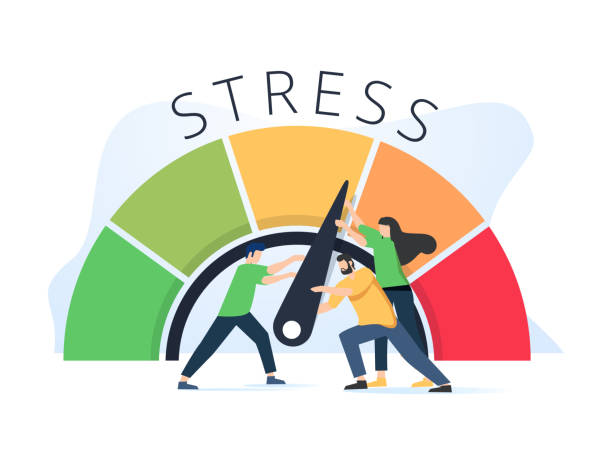Unraveling the Connection Between Stress and Cancer

In today’s fast-paced world, stress has become an omnipresent part of daily life. From work pressures to personal challenges, individuals grapple with stress in various forms. While the negative effects of stress on health are widely acknowledged, recent research has shed light on its potential link to cancer.

Research has shown that stress triggers a cascade of physiological and psychological responses in the body. While acute stress responses are adaptive and fleeting, chronic stress can wreak havoc on health. Chronic stress has been found to induce systemic inflammation, creating a microenvironment conducive to cancer development and progression. Elevated levels of pro-inflammatory cytokines, such as interleukin-6 (IL-6) and tumor necrosis factor-alpha (TNF-α), fuel tumor growth by promoting cell proliferation and angiogenesis.

Moreover, stress-induced alterations in immune function can compromise the body’s ability to detect and eliminate cancerous cells. Natural killer (NK) cell activity, T-cell function, and cytotoxic lymphocyte production are all adversely affected by chronic stress, weakening the immune system’s defenses against cancer.
Hormonal imbalance also plays a role in the stress-cancer connection. The release of cortisol and catecholamines in response to stress can modulate cell signaling pathways implicated in cancer progression. Prolonged exposure to stress hormones may promote tumor growth while suppressing apoptosis and DNA repair mechanisms.
Beyond the biological realm, psychosocial factors associated with stress can further influence cancer risk and outcomes. Socioeconomic disadvantage, social isolation, and adverse life events have been linked to increased cancer incidence and mortality. Psychological distress, including depression, anxiety, and perceived stress, can impact treatment adherence, immune function, and quality of life among cancer patients.

Consider the following statistics on the prevalence of some common cancers:
1. Breast Cancer: According to the World Health Organization (WHO), breast cancer is the most common cancer among women worldwide, with an estimated 2.3 million new cases diagnosed in 2020 alone.
2. Prostate Cancer: Prostate cancer is the second most common cancer in men globally. The American Cancer Society estimates that approximately 248,530 new cases of prostate cancer will be diagnosed in the United States in 2021.
3. Lung Cancer: Lung cancer is one of the leading causes of cancer-related deaths worldwide. In 2020, there were an estimated 2.2 million new cases of lung cancer, accounting for nearly 13% of all cancer diagnoses.
4. Colorectal Cancer: Colorectal cancer is the third most common cancer worldwide. The American Cancer Society estimates that about 149,500 new cases of colorectal cancer will be diagnosed in the United States in 2021.
Recognizing the link between stress and cancer opens avenues for preventive strategies and integrative approaches to cancer care. Stress management techniques, such as mindfulness-based stress reduction and cognitive-behavioral therapy, have shown promise in reducing stress-related biological markers and improving psychological well-being among cancer patients.

Furthermore, addressing psychosocial stressors and promoting resilience may mitigate cancer risk and enhance treatment outcomes. Interventions aimed at improving social support, coping skills, and emotional regulation can empower individuals to navigate the challenges of cancer diagnosis and treatment more effectively.

In addition to these interventions, adopting healthy lifestyle habits can help reduce stress and promote overall well-being. Regular exercise, adequate sleep, and a balanced diet are essential components of stress management. Engaging in relaxation techniques, such as deep breathing exercises, meditation, and yoga, can also help alleviate stress and promote relaxation.
The relationship between stress and cancer is a multifaceted one, involving intricate interactions between biological, psychological, and social factors. While stress alone may not directly cause cancer, its influence on the tumor microenvironment and immune function underscores its significance in cancer development and progression. By understanding these mechanisms, healthcare professionals can incorporate holistic approaches to cancer care that address the psychosocial dimensions of stress while supporting immune function and overall well-being. Ultimately, fostering resilience and empowering individuals to manage stress effectively may not only improve cancer outcomes but also enhance overall health and quality of life.
References:
– World Health Organization (WHO). (2021). Breast cancer. Retrieved from https://www.who.int/news-room/fact-sheets/detail/breast-cancer
– American Cancer Society. (2021). Key statistics for prostate cancer. Retrieved from https://www.cancer.org/cancer/prostate-cancer/about/key-statistics.html
– American Cancer Society. (2021). Key statistics for lung cancer. Retrieved from https://www.cancer.org/cancer/lung-cancer/about/key-statistics.html
– American Cancer Society. (2021). Key statistics for colorectal cancer. Retrieved from https://www.cancer.org/cancer/colon-rectal-cancer/about/key-statistics.html
